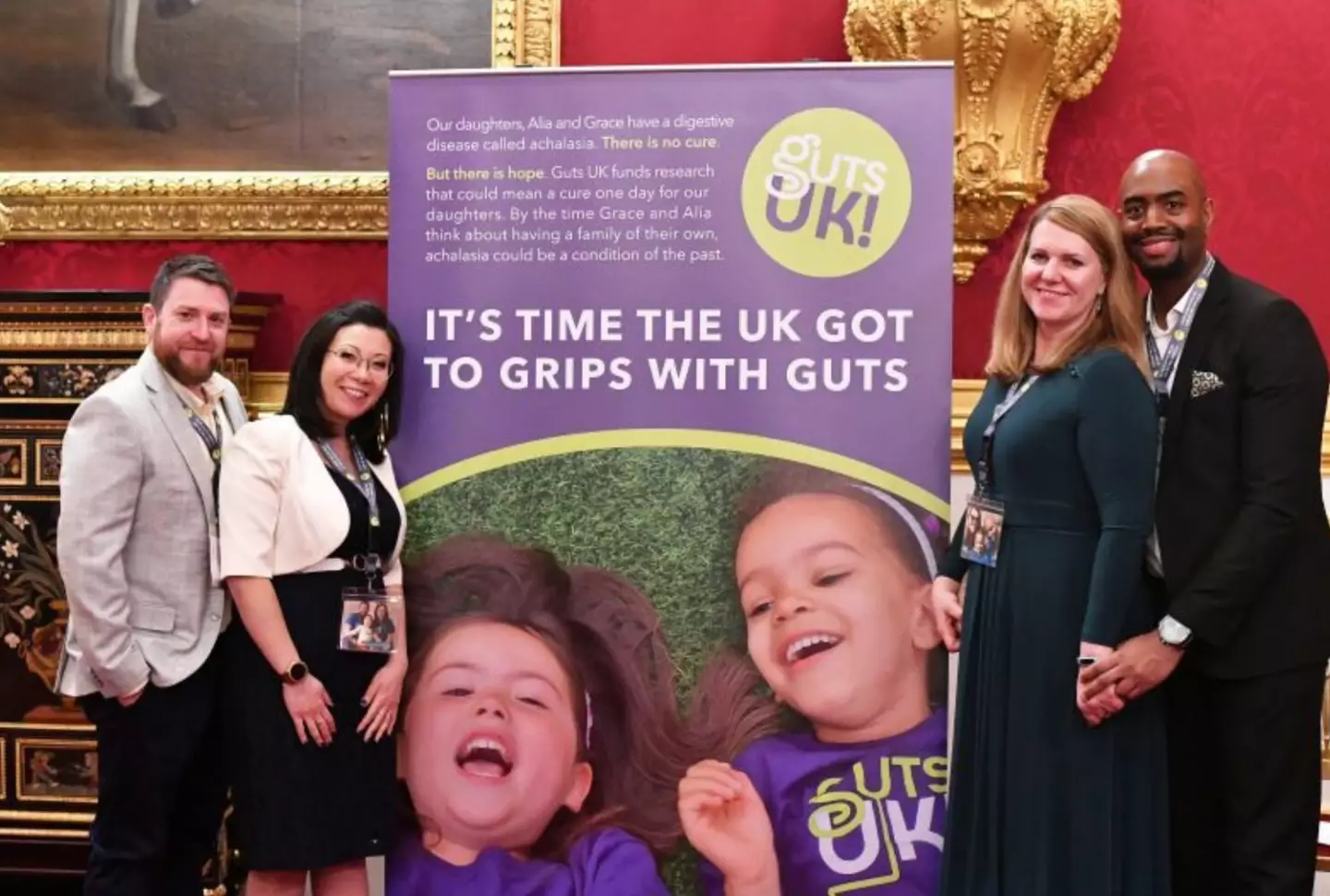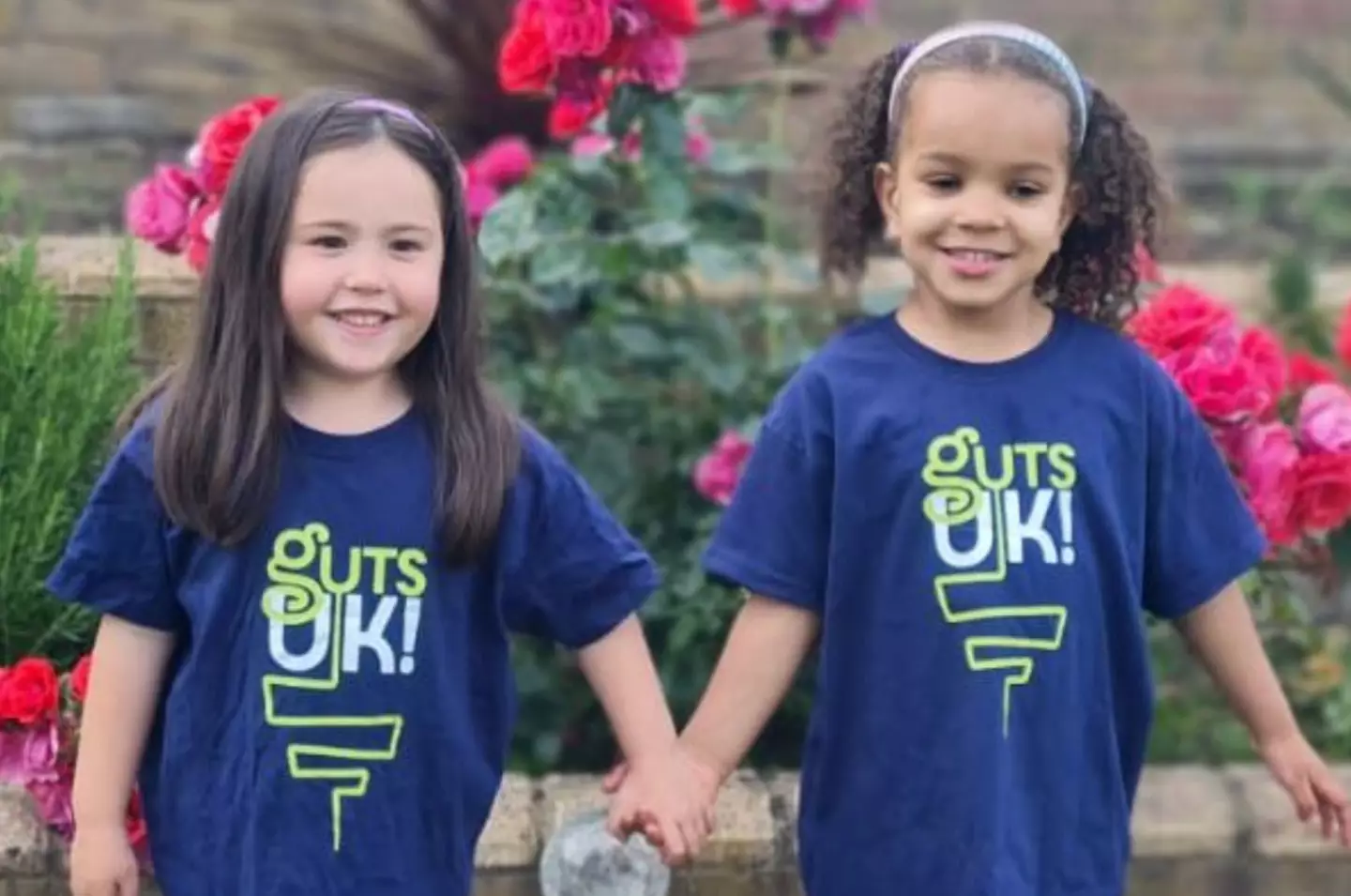
A family are striving to raise awareness of their young daughter's rare gastric condition, which has often been mistaken for food poisoning.
Eight-year-old Alia, from Chelmsford in the UK, is in danger every time she eats a meal.
The immensely rare condition she was diagnosed with as an infant affects only around 1 in every 100,000 new patients, but can have devastating consequences.
It's called achalasia, and it affects someone's ability to swallow food properly, as well as creating a danger that food will become stuck in the oesophagus.
Advert
When Alia first started showing symptoms of the condition, it was often mistaken for food poisoning, as she would frequently bring up food she had just eaten.
Her mum, Agnieszka, recalled how when Alia first started being unable to keep food down, she and Alia's dad, Cassius, were told by doctors it was just 'reflux'.

She said to charity GutsUK: "When we started weaning her at around seven months, she just couldn’t keep any food down, even milk was a struggle. We were told by doctors that it was reflux, but nothing helped. She began losing weight, losing her energy. It was heartbreaking.”
It would be months of hospital visits and worry before Alia was finally diagnosed with the rare condition, and medics could start looking at treatment options.
One of these was something called a 'balloon dilation', which is intended to help stretch the muscles in the oesophagus.
School became a big challenge because teachers who were just meeting her would often misunderstand what was happening, and assume that Alia had food poisoning.
“At nursery and school, teachers often mistook her regurgitation for food poisoning," Agnieszka explained. "We’d get phone calls asking us to pick her up."

"We had to explain, no, this isn’t contagious, it isn’t food poisoning, this is her condition," she added. "Once they understood, they were supportive, but it was exhausting to repeat the story every time she started somewhere new.”
Things have improved now, but Alia still sometimes struggles to keep food down.
Agnieszka said: “Even now at eight years old, every meal carries a risk. Sometimes food gets stuck in her oesophagus and she has to bring it back up. It can happen once or twice a month, depending on what she eats.
"Bread, pasta or bigger chunks of meat can be difficult. She’s learned how to manage it and she’ll excuse herself, go to the bathroom, and deal with it quietly.
"Then she comes back, sits down for a few minutes, and carries on as if nothing’s happened.”

While things are better at the moment, her mum still worries about how she will handle it as a teen.
“Right now, she takes it in her stride, but I know when she’s a teenager she might feel embarrassed about being sick in front of her friends," she said. "That’s why awareness matters so much. Children like Alia deserve understanding and support.”
The family work with GutsUK to help raise awareness for Alia, as well as people living with other rare gastric conditions. And through this partnership, Alia made friends with a girl called Grace who also lives with the condition.
The girls bonded quickly, as well as Grace's parents, Steve and Vanessa, finding relief in sharing experiences and advice with Alia's family.
"It was really beneficial for the girls, but also for us as parents," Agnieszka reflected. "We could finally talk openly with people who understood."
